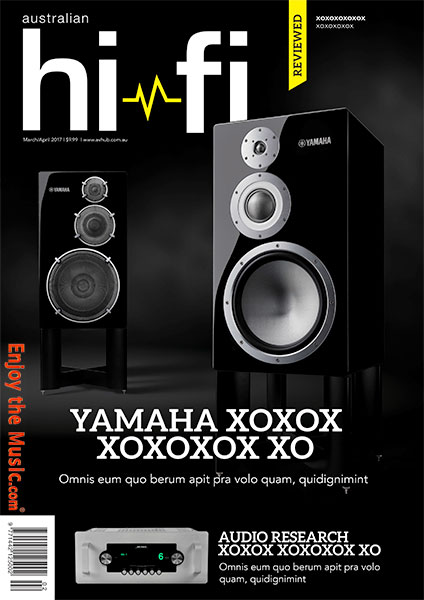|
|
| Home | High-End Audio Reviews | Audiophile Show Reports | Partner Mags | Hi-Fi / Music News | |
|
|
Celebrating 30 Years Of Service To Music Lovers |
![]()

March / April 2017
In This Issue...
Longer Hi-Fi Warranties… With One Exception
Editorial By Greg Borrowman
Is it just my imagination, or are warranty periods for hi-fi components getting longer?
If you're new to the audio world, you'll probably be horrified to learn that back in the 70s, the maximum warranty period on any hi-fi component was one year, and for many items, it was just three months.
These days, the only hi-fi product I can think of where you're offered only a three month warranty is one where valves are involved and frankly, this puzzles me the most out of all hi-fi warranties because valves are — bless their warm little thermionic hearts — inherently reliable devices.
During the early stages of the Vietnam War, for example, almost all the radios that were being chucked out of helicopters and dragged through jungles and paddy fields were valve-based. Until rather more recently, valves could be found in the electronic circuitry of most Soviet spacecraft. Many military facilities still use valves because of their immunity to electromagnetic pulse (EMP) attacks.
But even if valves were not reliable, they're so inexpensive (some valve types excepted!) that even if one did fail during the warranty period, replacing it would cost only a few dollars. And replacing a valve is not like replacing a solid-state component, where it can be difficult to diagnose a fault and then takes time to de-solder the faulty part and re-solder a new one back in. If a valve fails, you just pull it out and plug in a newie. Easy! So why such a short warranty?

Loudspeaker warranties have progressed from where they started — at two years — to the current industry standard of five years. I suspect this is more to do with the increased reliability of the capacitors in the crossover network than any improvements in driver materials or technology. Metal cones and rubber surrounds might be more durable than paper and cloth, but plenty of speakers with paper cones and cloth surrounds are still doing sterling duty in hi-fi systems around the world twenty and thirty years down the track. Even more heartening, seven and ten-year speaker warranties are becoming more common-place… even if they're not quite yet 'common'. If you're looking at buying a loudspeaker that does not have a five-year warranty, I'd be looking elsewhere… and even more so if it's a high-end brand.
These days, probably the biggest problem facing manufacturers offering long warranties is ensuring they keep stock of key parts, such as specialist integrated circuits (DACs in particular), laser diodes... sometimes, even, transistors. The issue here is that these devices become superseded quite quickly and it's often impossible to find a substitute. I know of one manufacturer which had to scrap an entire run of CD players because it had left purchasing its transports until the last minute, only to discover, when it placed its order, that the required part was no longer available. I confess this is one reason I like using discrete products for discrete functions (separate phono stage, separate DAC, separate pre and power amplifiers, etc), so that if I do have a 'non-repairable' issue with a product, it's easier and cheaper to replace.
Of course having a warranty is one thing; getting it honoured is quite another entirely.
The legal maxim to remember here is that if a product fails under warranty, the entity responsible for fulfilling that warranty is the entity that took your money in exchange for it in the first place. This is because a contract can only exist between a buyer and a seller, and the warranty conditions form part of this contract.
In the hi-fi business, that means that your hi-fi dealer is the sole person responsible for honouring a product warranty: Not the distributor of that product, or the manufacturer. If the distributor has gone out of business, or no longer imports that product, or the manufacturer has gone bust, or even if the product is not repairable at all… it doesn't matter. It's still the responsibility of the person who sold you that product to either repair it or replace it with a functionally identical product of equal or higher value.
Which means that you should be particularly careful about choosing your hi-fi dealer!
--- Greg Borrowman
Subscribe To Australian Hi-Fi Magazine
Get
this issue of Australian Hi-Fi Magazine by clicking here.

 High-Performance Audio Reviews
High-Performance Audio Reviews
















